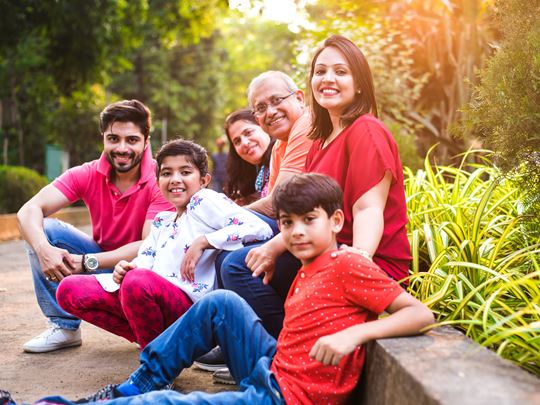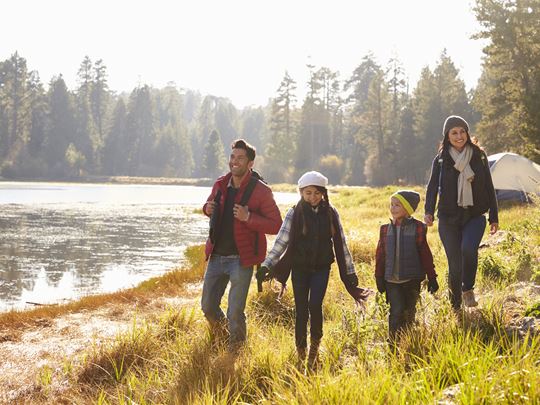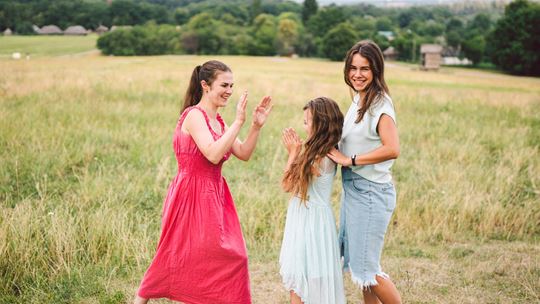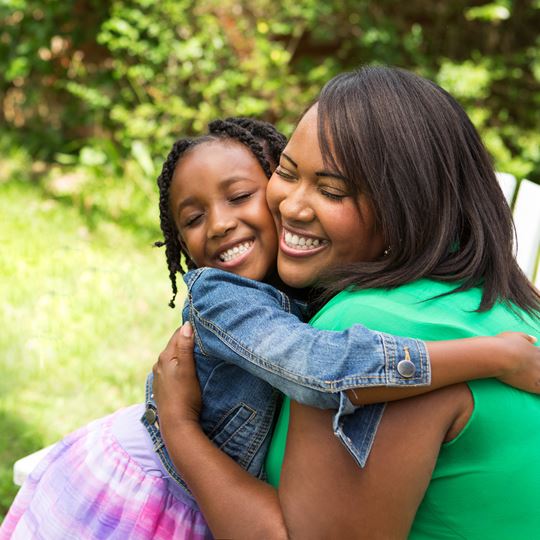Families come in all different shapes and sizes, and foster families are no different. As long as children are getting the love, care and security they need, that’s what matters to us.
Families are like fingerprints. They’re all incredibly unique. Some are small, such as a single parent with an only child, while others are big with lots of siblings and cousins.
Then there are families with adopted children who might be of a different race, blended families with step-parents and stepchildren, child-free families, families with same-sex parents, and of course, foster families.
What we’ve all come to realise in recent times is that the idea of family is different for everyone, and there is no right way to build one.
Introducing the modern foster family
With over 25 years’ experience in foster care, we understand the things that really matter to our young people when it comes to their foster families. It’s not about age, race or sexuality, it’s about being loved, supported, listened to and crucially, that they feel like they belong.
That’s why we welcome people from all walks of life to apply to become a foster parent with us. The world is a diverse and colourful place, and we want our amazing team of foster parents to reflect this.
If you’re thinking about fostering and want to transform the lives of vulnerable children, get in touch today.
Shauna's story
Shauna shares her personal journey in foster care with Orange Grove, and how her foster family completely changed her life...

Championing modern foster families at Orange Grove
Whatever your sexuality, marital status, ethnicity or gender, everybody has the right to start and build a family through fostering.
Having diversity in foster care is what makes it so exciting, powerful and transformative. It also sets our young people up for the world, as they can get to experience a different culture or be exposed to new opportunities, ideas and ways of thinking.
Diversity is a wonderful thing, and we’re proud to be an inclusive independent fostering agency.
Fostering with Pride: LGBTQIA+ foster families
Starting a family is everybody’s right, which is why the modern family includes LGBTQIA+ foster parents.
Whether you’re fostering as a same-sex couple or are someone who identifies as part of the LGBTQIA+ community, your ability to make an incredible difference to children in care lies in who you are as a person, not your sexuality or gender.
Many children in care will also be questioning their own sexual and gender identities. LGBTQIA+ foster parents will have invaluable insight to support and guide young people through their personal journey of self-discovery.
Same-sex couples or gay singletons can also support young people and provide any child with a loving, nurturing home, and this is what Fostering with Pride is all about.
How to be a foster family to an LGBTQIA+ child
As well as having to deal with their lives being uprooted, children in care who identify as LGBTQIA+ will potentially have other hardships and challenges to face, such as homophobia, transphobia and other stigma towards the community.
Read our top tips on how foster parents can support, advocate and promote allyship towards LGBTQIA+ youth.
You can also download our free guide, Raising a Foster Child with Pride: How to Support LGBTQIA+ Youth in Foster Care.
Families who foster siblings
At Orange Grove, we believe in the power of relationships, so keeping siblings together in foster care is something we will always strive towards.
Brothers and sisters who are placed with the same foster family can give each other emotional, social and psychological support, which is crucial in helping them make sense of their situation and settle into a new environment.
Taking on the emotions of more than one foster child might sound daunting, but if you’ve got the room in your house and the love in your heart, fostering sibling groups is a heartwarming experience.
How will fostering affect my family?
Fostering can enrich your family in so many extraordinary ways. While it can also present some challenges, such as navigating complex emotions and managing the additional responsibilities that come with caring for a child in need, many families find that the benefits of fostering far outweigh any difficulties.

Talking to your loved ones about family fostering
If you’re thinking of becoming a foster parent but have a partner, spouse or birth children, you need to make sure you have their full support too. After all, it’s a life-changing career that will impact the current family dynamic.
They’re likely going to have a lot of questions to ask about fostering, so it’s important to be honest, open and collaborative in your discussions.
- Learn as much about fostering as you can.
- Discuss the pros and cons openly.
- Have regular, honest conversations.
- Reassure them about things that won’t change.
- Remind them of the benefits and how you’ll be helping a child in need.
Other articles you might be interested in...

Types of fostering
There are many different types of foster care placements, including long and short term, respite, parent and child and more.
Read More
Allowance calculator
Try our fostering allowance calculator today to find out how much you could receive from fostering.
Read More
Why choose us
24/7 local support, Excellent ongoing training and competitive allowances are just a few of the reasons why you should choose us for your fostering journey.
Read MoreFrequently asked questions
How much do foster families get paid?
How much does a foster family get paid is an important question to ask any agency you’re thinking of fostering with.
All of our foster parents receive a generous fostering allowance, which covers the cost of caring for a child as well as rewarding them for all their hard work. The exact amount you get depends on your experience, training and the age of the child in your care.
As well as this, we offer other financial benefits too, such as 2 weeks of paid respite per year, £100 annual birthday allowance for the child in your care and £100 annual festival allowance for the child in your care, because all children deserve to celebrate and make happy memories.
How do we become a foster family?
The first step to become a foster parent is to get in touch! Fill out our online enquiry form and one of our fostering specialists will call you back for a quick chat.
There’s no obligation at this stage, it’s just a chance for you to ask any questions and find out more about how foster families work and if fostering is right for you. You can also give us a call on 0800 369 8513. We look forward to hearing from you.
Do I need any experience to become a foster parent?
Previous experience with children, either in a professional or personal capacity, is beneficial but it's absolutely not essential.
Our foster parent training programme will provide you with all the skills and knowledge you need to work with children in foster care right from the get-go. Plus, you'll have your very own supervising social worker, a family support worker and regional manager by your side, offering expert guidance and ongoing support.
Do I need to have a spare room to foster?
Yes - A spare bedroom is necessary and should have enough space to accommodate a single bed, a wardrobe, and a small desk.
Learn more about the requirements of a spare bedroom and why children in care must have their own space below.
Please make sure you read our terms and conditions because you're agreeing to them by submitting an enquiry. It's also worth reading our privacy policy and cookies policy so you understand how we collect and use your personal data. This site is protected by reCAPTCHA and the Google privacy policy and Terms of Service apply.
Can't find what you're looking for?
By phone
One of our team is available to talk to you over the phone to answer any of your fostering queries.
Enquire online
You can get in touch by filling out our online enquiry form with any queries that you may have.
Your local office
We have local teams covering most of England. Find your local office today.


